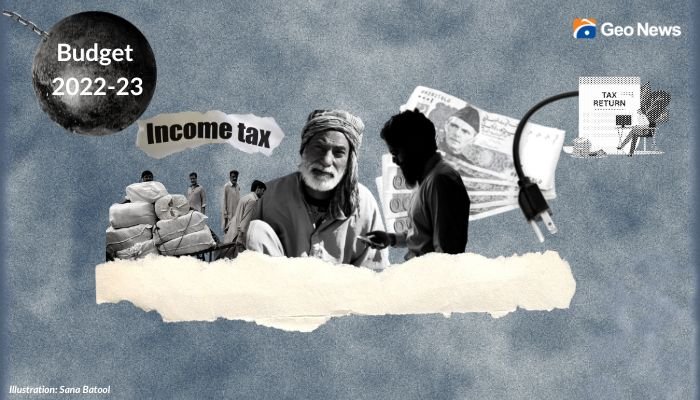- Pakistan braces itself for budget 2022-23 to be presented before National Assembly at 4pm.
- It will be presented by Finance Minister Miftah Ismail.
- This is being dubbed by economists as “one of the toughest budgets in Pakistan’s history”.
ISLAMABAD: All eyes are on the Prime Minister Shehbaz Sharif-led government as it sets out to present its first budget while the country races against the clock to resume disbursements under a $6 billion International Monetary Fund (IMF) loan programme.
The government will present the budget for next fiscal year 2022-23 in Parliament today, with special focus on fiscal consolidation to contain a budget deficit.
Minister for Finance Miftah Ismail will present it before the National Assembly at 4pm. It is being dubbed by economists as “one of the toughest budgets in Pakistan’s history”.
Despite official claims that the budget will restore stability to Pakistan’s economic outlook, the downside risk is difficult to ignore.
In the run-up to Pakistan’s new fiscal year beginning next month (July), independent economists have begun to forecast inflation of up to 20% over the next 12 months, at least in many key areas. This is clearly a staggering increase from the expected inflation of more than 13% in the fiscal year ending this month.
The upcoming increase will be primarily driven by a recent price increase of about one-third in domestic fuel prices, a 45% increase in gas tariffs, and a 40% to 50% increase in the cost of electricity.
Together, Pakistan’s increasingly expensive energy mix will inevitably force middle and low-income households to tighten their belts as never before. The spillover is set to be felt in increasingly expensive essential services such as healthcare and education — just two key ingredients in the life of any mainstream family. Pakistanis are about to face one of the hardest times in recent history, and no amount of sugarcoating will help.
The heavy cost of a return to normalised relations with the IMF following such unpalatable measures may appear to some as a bitter pill not worth swallowing. However, it is the inevitable bitter pill that Pakistan must swallow to save it from short-term economic ruin. The next IMF disbursement of US $1 billion on its own seems far too modest by comparison to the painful measures about to be inflicted on millions of households. But the value of a restored relationship with the Washington-based lender will come through Islamabad’s heading successfully towards accessing other sources of loans. On Thursday, finance minister Miftah Ismail used his pre-budget news conference to announce an imminent increase likely in Pakistan’s existing foreign currency reserves by about 25 per cent to US$12 billion in the next few days, on the back of a Chinese loan of US$2.4 billion.
Yet, the budget will present Pakistan with two recurring challenges—the matter of meeting tax collection targets and narrowing the divide between exports and imports, to protect the country against another balance of payments crisis. On both of these counts, a restored relationship with the IMF provides a few assurances that Pakistan will successfully oversee sweeping reforms to make a difference. For prime minister Shehbaz Sharif, leading a government that is not too far from the next elections, hardly helps.
Already, the twin combinations of sharply rising inflation and energy shortages displayed in daily lives through the dreadful reality of frequent loadshedding have hardly helped to block official credentials from heading southwards.
In the coming months, Pakistan’s continuing economic challenges will likely deepen the pressure on the Sharif government to maintain recent curbs on imports, to narrow the international trade gap. This will inevitably become the outcome of a situation where Pakistan’s space to pump up its exports will remain limited. As long as oil prices stay high and there is no sign of them going down to more affordable levels, import limits will also be a hard problem to solve.
Pakistan’s economic pain will likely remain in place, and possibly even get aggravated, in the presence of high interest rates. Many independent economists say that if inflation keeps going up, the State Bank of Pakistan will be forced to raise its interest rates even more.
Meanwhile, Pakistan’s continuously rising political pressure for the foreseeable future is set to undermine the country’s economic journey. Former prime minister Imran Khan’s continuing clamour for parliamentary elections ahead of summer 2023, will likely keep the country’s overall atmosphere on the boil. Even if the Sharif government stays in place until next year, Khan’s actions will make it less likely that it will be stable, which will hurt the economy.
When finance minister Miftah Ismail rises in parliament on Friday to present the budget, he may well find comfort in delivering his speech uninterrupted in the absence of opposition members. Yet, beyond a relatively smooth delivery of the budget speech, the road ahead is set to be tougher than any seen ever before in recent times.

 Entertainment2 days ago
Entertainment2 days ago
 Latest News2 days ago
Latest News2 days ago
 Latest News2 days ago
Latest News2 days ago
 Latest News2 days ago
Latest News2 days ago
 Latest News2 days ago
Latest News2 days ago
 Entertainment2 days ago
Entertainment2 days ago
 Latest News2 days ago
Latest News2 days ago
 Business23 hours ago
Business23 hours ago






















